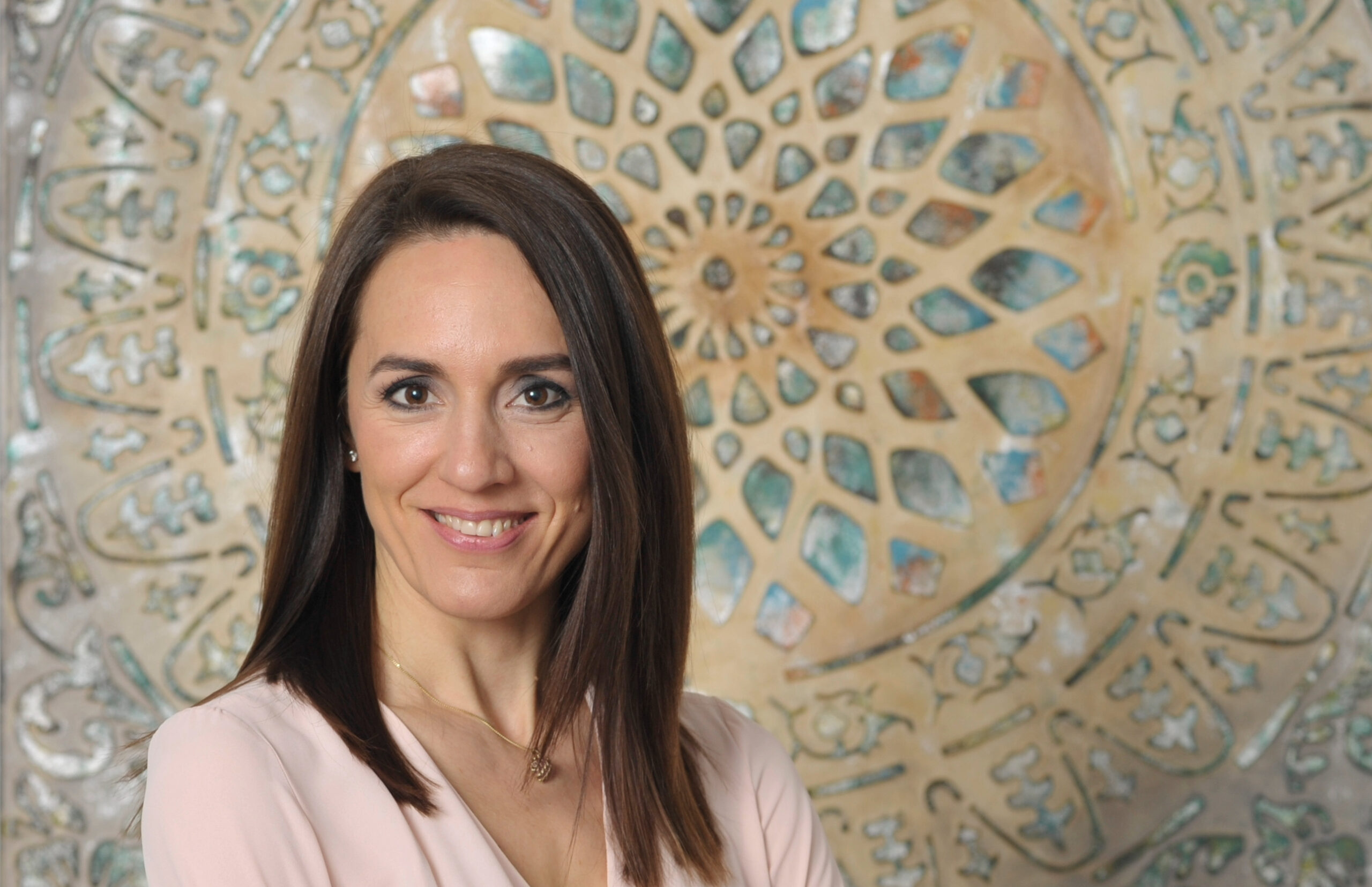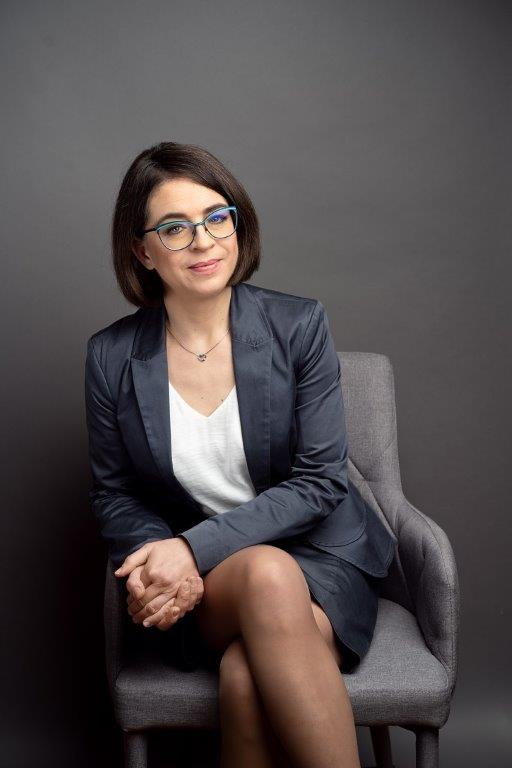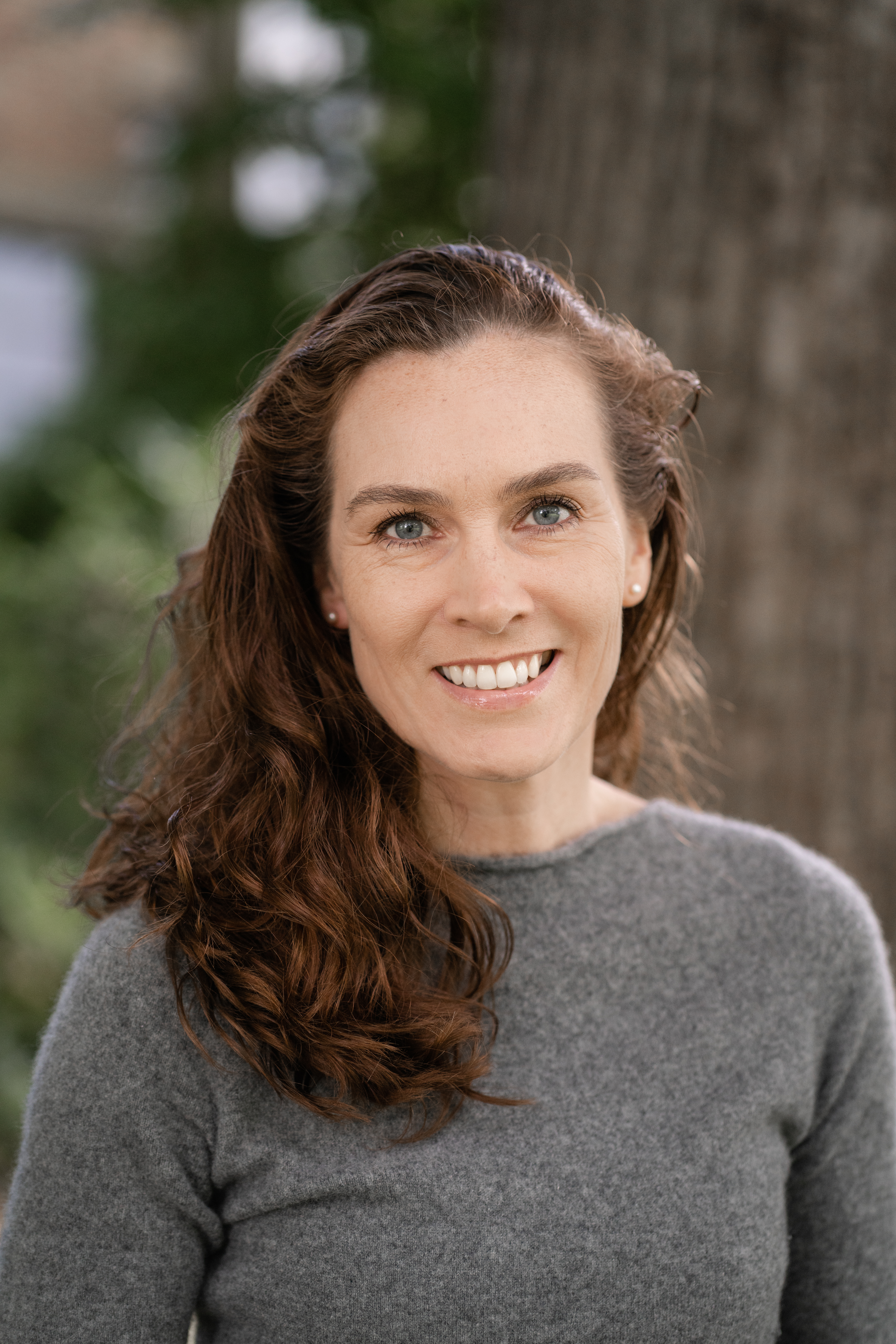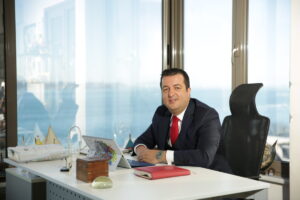The voice of the child
How can the voice of the child be heard in a Hague Convention procedure?
- Does the court appoint a guardian ad litem?
- What is the task or what are the questions he or she has to answer?
- Does (s)he have a talk with the child?
In what other way is the voice of the child heard in a Hague Convention case?
Different lawyers from different countries explain the role of the guardian ad litem, or in what other way the child’s voice is heard.
Hungary

Anita Vimláti, Family Lawyer in Hungary
In child abduction cases, Hungary is bound not only by the Hague Convention but also by the relevant provisions of the Brussels II Regulation, as Articles 23-29 of the Regulation must be applied by all EU Member State courts in return proceedings.
Strengthening children’s right to express their views was a symbolic issue in the drafting of the Brussels IIb Regulation.
As a result, Article 21 of the Brussels IIb Regulation contains an explicit provision on the child’s right to express his or her views – a provision harmonised at EU level: courts in the Member States shall ensure, in accordance with national law and practice, that a child who is capable of forming his or her own views is given a real and effective opportunity to express his or her views freely during the proceedings, either directly or through a representative.
If children express their views during the proceedings, due account should be taken of their opinion, with regard to their age and degree of maturity.
This provision is a development of Article 12 of the Convention on the Rights of the Child, signed in New York on 20 November 1989 (promulgated in Hungary by Act LXIV of 1991).
Article 26 of the Brussels IIB Regulation states that Article 21 (principles relating to the hearing of children) also applies to return proceedings under the Hague Convention.
Accordingly, in proceedings for the return of children who have been wrongfully removed or retained in Hungary, children (who are capable of forming their own views / who have the capacity to judge) must be given the opportunity to be heard in accordance with the rules of national law and the conditions for the hearing of the child must be created.
Being heard is a right of the child but not an absolute obligation. Whether or not the hearing should take place must be considered by the court in each case on the basis of the requirements of the best interests of the child. The hearing may be conducted either directly by the judge or by an expert.
Just as there is no single definition of the child’s capacity to judge in international law, there is no single formula for it in Hungarian law, and it is certainly not linked to the child’s age. Paragraph 2 of the Children’s Act and court practice provide support, and the principle has emerged that a minor who, in accordance with his or her age and intellectual and emotional development, is capable of understanding the essential content of facts and decisions affecting him or her and of foreseeing the likely consequences may be regarded as a child with the capacity to judge.
The following principles should be applied when hearing the child:
– Respect for the child
– Guarantee of sufficient time for the hearing
– Avoidance of waiting time in court or otherwise causing the child unnecessary additional stress
– The possibility for the child to be accompanied by a trusted person (even if neither the parents nor the lawyers are present during the hearing)
– Relief from responsibility for the decision
And how will children be heard in practice in emotionally charged proceedings – for example, when one parent takes a child to another country against the other parent’s wishes?
A study (*) on the practice of Hungarian judges in the first instance in cases of wrongful removal of children was conducted a few years ago. The results of the survey can be used to analyse certain issues and trends, although the answers of the respondents cannot be considered as the position of the judiciary.
The following conclusions can be drawn about the conditions under which children are heard in Hungary in Hague cases:
– There is no age limit, judges often hear children as young as 4-5 years old.
– In almost all cases, both parents request that the child be heard.
– In the majority of cases, the hearing of the child does take place.
– A guardian ad litem is usually not appointed.
Section 473(1) and (4) of the Hungarian Code of Civil Procedure stipulates that if the court decides to hear the child, it shall at the same time, if justified, appoint a guardian ad litem for the child ex officio. The appointment of a guardian ad litem is not compulsory and it is at the discretion of the judge to decide whether it is necessary. In practice, it is not usual to appoint a guardian ad litem.
– Children are usually heard directly by the judge rather than by experts.
The reason for this is that there is a clear distinction between the return procedure and the procedure on the merits of parental custody.
– Questions about children generally focus on their kindergarten, school, the circumstances of their arrival in Hungary and their experiences of Hungary and the other country. The judges ask about friends and relationships with parents and relatives.
Interestingly, some judges ask about the language the child likes to read. They don’t usually ask which parent the child is more attached to, but they sometimes ask questions that focus on the decision (“How would you feel if they decided to go back?”).
Under Article 473(5) of the Code of Civil Procedure, at the end of the hearing the child’s written statement must be read out loud in the presence of the child. The child may then have the opportunity to make corrections or additions. According to the judges, children often expressly request that their statements are not recorded. However, the transcript is read out to the parents after the hearing in the presence of the lawyers. Therefore, judges usually try to assess the situation in which the problem itself, rather than the exact content of what was said, needs to be shared with the parents.
According to the judges, the hearing is often a source of stress for the children, which they try to alleviate in a variety of ways. There are child-friendly hearing rooms and it is possible to provide toys for children. There are judges who do not wear their judicial robes when the child is being heard and may offer sweets. Judges also try to be sensitive to the needs of the child by drawing on their own experience as a parent.
(*) Murányi Fanni: A jogellenes elvitel gyermekáldozatainak meghallgatása a bírák szemszögéből (CSJ, 2021/3., 26-32. o.) https://szakcikkadatbazis.hu/doc/5440471
Poland

Agnieszka Zwaczyna
Swaczyna Labuz-Weiss Kancelaria Adwokacka s.c., Poland
There is no guardian ad litem in Polish legal system. Neither in parental abduction cases nor in family cases. Abducted child’s interest in Hague convention cases is compulsorily represented by the prosecutor. The prosecutor can also participate in other family cases before the court. In any proceedings, the prosecutor has the same rights as other parties.
Public prosecutor
According to Polish law the participation of the public prosecutor in family and guardianship law proceedings is indicated especially in cases:
1) for annulment and for establishing the existence or non-existence of marriage;
2) for the denial of paternity or maternity and for determining the ineffectiveness of acknowledgment of paternity;
3) for adoption by foreigners or Polish citizens with residence or habitual residence abroad;
4) for termination of adoption;
5) for the removal of a person subject to parental authority or under guardianship;
6) for termination of parental authority;
7) for an order prohibiting contact with the child;
8) for adoption of a child not reported to the adoption center.
Child abduction cases
Returning to Hague convention cases – each party is asked at the beginning of the proceedings about the procedural position. In Hague convention cases usually the prosecutor refrains from taking a position until the conclusion of the proceedings. Frankly, this means nothing and is the typical way prosecutors handle Hague Convention cases. A prosecutor has no contact with other parties or the child himself – builds knowledge of the case on the basis of the case file and evidence presented by the parties.
It is also possible to ask the child ombudsman or the human rights ombudsman to participate in the proceeding. If the ombudsman agrees to take part in the proceedings, he becomes a party and has the right to present his own position, file an appeal or file a cassation complaint.
Child interview
The voice of a child is an essential part of family cases (also in Hagie convention cases) The child can be heard during the proceedings by the judge (outside the courtroom, often in the presence of a psychologist). The judge can also ask for the OZSS (a special institution that assists the courts with psychological and pedagogical opinions about the family) opinion. On this basis, the judge can decide whether and to what extent to take into account the child’s wishes in deciding the case.
Spain
Adriana de Ruiter, Tulp Abogados, Spain
In the Spanish legal system, the guardian ad litem is not used in abduction cases nor in any other family conflicts, as parental responsibility orders. This doesn’t mean the child is not protected nor defended at Court. In all cases in which children are involved, the Public Prosecutor will defend the interests of the child, regardless the age of the children.
The task of the Public Prosecutor during restitution proceedings is to guarantee the best interest of the children is respected. He or she will have an active role during the hearing, interrogating the parents, evaluating the evidence, and concluding the best interest of the child whether this means the return or the denial of the restitution.
The public prosecutor will receive the file with the application, defence and written evidence, but he/she will not have private interviews with the parents or with the child(ren). The public prosecutor will be called by Court. No direct contact is established between the public prosecutor or the implied parties.

In case the child is over 12 or mature enough to be heard, both the judge as the public prosecutor will interview the child. Nor the parents, nor the lawyers of the parents are present during this interview, though they will receive a copy or transcription of what was said during this interview. In other cases, the children are heard by psychologists. All parties, including the Public Prosecutor, receive the psychological report and are allowed to interview the psychologist during the hearing.
After the hearing and once all evidence has been provided, the Public Prosecutor will recommend the judge which decision to take, but he/she will not have any contact afterwards with the child, nor with the parents or the lawyers.
Read this text in Spanish
The Netherlands

Martine Wernsen, Family Lawyer The Hague, The Netherlands
The guardian ad litem plays a major role in return proceedings before the court in the Netherlands.
In return proceedings, the court appoints a guardian ad litem (Article 1:250 of the Civil Code) for every minor aged 3 years or older. If an appeal is lodged, the appointment of the guardian ad litem continues during the appeal.
Appointment of special trustee
The guardian ad litem is appointed by the court after the first hearing, when it has become clear that a substantive hearing of the case will have to take place. The first hearing is the pro forma hearing, at which no decision on the request for a return order is yet taken. At that hearing, in the presence of the parties and the representative of the Child Care and Protection Board, discussions include whether the parties want to be referred to mediation and whether there is contact between the child and the left-behind parent.
The questions to the guardian ad litem
The guardian ad litem is instructed by the court to answer the following questions in a report before the next hearing:
– what does the minor himself indicate about staying in the country of origin and the Netherlands,
– to what extent can the minor express himself freely,
– to what extent can the minor oversee the consequences of staying in the country of origin or the Netherlands, and
– have any details emerged that are relevant to the decision to be taken by the court?
The work of the special guardian
The guardian ad litem will have at least 2 interviews with the child, without the parents being present. The special curator does not interview the parents and does not conduct any other investigation. He or she writes a report for the court with the findings, which is provided to the parties.
Child interview with the judge
Prior to the second hearing, the minor can have an interview with one of the judges, in the presence of the court clerk. If the minor wishes, the guardian ad litem may be present at that interview. The content of this child interview is summarised orally by the court for the parents and their lawyers at the hearing.
At the second hearing, the minor is not present but the guardian ad litem is.
The guardian ad litem’s report
The guardian ad litem’s report and what the guardian ad litem puts forward at the hearing may be important in answering the following questions:
– Is there resistance of the child against a return to the home country (art.13 para 2)
– Would return to the home country result in an intolerable condition (art.13 para 1 sub a)
If a minor makes statements indicating resistance, the court may also explain this as the result of a loyalty conflict. The court can then use the guardian ad litem’s report to determine how much weight should be given to the minor’s statements.
Continuity in the minor’s statements
When weighing the minor’s statements, it is also important whether the minor’s statements to the guardian ad litem are consistent with the minor’s statements during the child interview, and whether the court’s impression of the minor is consistent with the guardian ad litem’s impression of the minor.
Psychological distress
An example of this is the judgment of the Hague Court of Appeal of 10 February 2022. The 11-year-old boy showed to the guardian ad litem and during the child interview that he suffered from fears of a possible return. He revealed that the mere thought of having to return to Belgium evoked death wishes in him The Court concluded that a return would put this boy in an intolerable condition (an acute situation of psychological distress).
In the judgment, the court may request the guardian ad litem to discuss the judgment with the minor and, to this end, provide that the appointment of the special trustee continues for some time.
Turkey
Mert Yalçin, Yalçin & Toygar Law Office, Istanbul, Turkey
In Turkish legal system, the guardian ad litem is applicable in some of the cases, especially if the child is a party of the case held before Turkish Courts and these specific cases are generally determined in the Turkish Civil Code numbered 4721. According to Article 426/2 of Turkish Civil Code, the guardian can be appointed if the interests of the legal representative and the interests of the minor or the restricted person conflict. The most typical cases where the case will be filed by the guardian or the court will appoint a guardian to the child is the paternity cases as such case will require the representation and consideration of the child apart from the parent.
Turkish system has two options of the guardian: 1) Guardian for the representation and 2) Guardian for management. The related person can ask from the court to appoint a guardian to the child or the court can request to appoint a guardian to the child if there is a pending case filed by the parent of the child and if the child is subjected (a party) of it. The type and the role of the guardian will be determined by the court. The guardian represents the child and asks the court to take the related measures upon the request with the consideration of the best benefit of the child. The guardian will be present in each hearings after the appointment.
The age of 8
In the recent practices of the Turkish Supreme Court, the child who reaches the age of 8 is considered as mature to provide the opinions during the proceedings such as in the divorce cases. Turkish civil legal system have a connection with the pedagogue/psychologists of the court and receive the expert report regarding the child if the custody or establishment of the child is requested during a pending case. The Turkish Judge can decide to listen the child on his or her own at the court while the pedagogue is present with the child and in such action, the judge asks the parties’ leaving the court room but the representatives of both parties can be present during the interview of the child.
The civil cases that the public prosecutor is involved are the child abduction cases filed in relation to the Hague Convention on the Civil Aspects of International Child Abduction and in these type of cases, there is not any guardian appointed for the child but the court can decide to receive the opinion of the child if the child is mature enough according to the practices of the Turkish Supreme Court or the pedagogues can interview the child alone. The Turkish Court has the sole authority to consider the best benefit of the child.
Read this text in Turkish

United Kingdom – England and Wales
Carolina Marín Pedreño, Dawson Cornwell, United Kingdom
Art 12 of the United Nations Convention on the Rights of the Child:
1. States Parties shall assure to the child who is capable of forming his or her own views the right to express those views freely in all matters affecting the child, the views of the child being given due weight in accordance with the age and maturity of the child.
2. For this purpose, the child shall in particular be provided the opportunity to be heard in any judicial and administrative proceedings affecting the child, either directly, or through a representative or an appropriate body, in a manner consistent with the procedural rules of national law.
Article 12 of the UNCEC recognises that by the terms of the article the child’s right to participate may be met otherwise than by means of direct participation in proceedings.
There are three different ways for the child’s views to be brought before the court in England and Wales:
1. Interview with an officer of Cafcass;
2. Face to face communication with the judge and
3. Child becoming a party to the proceedings.
1. Interview with an officer of Cafcass
The most common way for the Court to hear the child’s voice is through an interview with a Cafcass officer. Cafcass stands for Children and Family Court Advisory and Support Service. Cafcass represents children in family court cases. The officers are independent of the courts, social services, education and health authorities and all similar agencies.
However depending on the maturity of the child or young adult, or the nature of the dispute, Cafcass could recommend to the Court that the child should be separately represented in the proceedings, any party could make an application for the child/young person to be separately represented in the proceedings, the Court of its own volition can decide at it is in his best interest to be party or the child/young person could instruct a solicitor and make an application to be separately represented.
An interview with an officer of Cafcass, when in cases with young adults or very mature young children, is often not sufficient as the child requires more involvement and to be heard ‘directly’ by the Court.
It is becoming more and more common to see children over 10 years of age as parties to proceedings, especially when the main issue of the litigation is in which country they should live.
2. Face to face meeting
The judge is entitled to expect the lawyer for the child and/or the Cafcass officer:
(i) to advise whether the child wishes to meet the Judge;
(ii) if so, to explain from the child’s perspective, the purpose of the meeting;
(iii) to advise whether it accords with the welfare interests of the child for such a meeting take place; and
(iv) to identify the purpose of the proposed meeting as perceived by the child’s professional representative/s.
The other parties shall be entitled to make representations as to any proposed meeting with the Judge before the Judge decides whether or not it shall take place.
In deciding whether or not a meeting shall take place and, if so, in what circumstances, the child’s chronological age is relevant but not determinative. Some children of 7 or even younger have a clear understanding of their circumstances and very clear views which they may wish to express.
If the child wishes to meet the judge but the judge decides that a meeting would be inappropriate, the judge should consider providing a brief explanation in writing for the child.
If a judge decides to meet a child, it is a matter for the discretion of the judge, having considered representations from the parties:
(i) the purpose and proposed content of the meeting;
(ii) at what stage during the proceedings, or after they have concluded, the meeting should take place;
(iii) where the meeting will take place;
(iv) who will bring the child to the meeting;
(v) who will prepare the child for the meeting (this should usually be the Cafcass officer);
(vi) who shall attend during the meeting – although a Judge should never see a child alone;
(vii) by whom a minute of the meeting shall be taken, how that minute is to be approved by the Judge, and how it is to be communicated to the other parties.
It cannot be stressed too often that the child’s meeting with the judge is not for the purpose of gathering evidence. That is the responsibility of the Cafcass officer. The purpose is to enable the child to gain some understanding of what is going on, and to be reassured that the judge has understood him/her.
If the meeting takes place prior to the conclusion of the proceedings –
(i) The judge should explain to the child at an early stage that a judge cannot hold secrets. What is said by the child will, other than in exceptional circumstances, be communicated to his/her parents and other parties.
(ii) The judge should also explain that decisions in the case are the responsibility of the judge, who will have to weigh a number of factors, and that the outcome is never the responsibility of the child.
(iii) The judge should discuss with the child how his or her decisions will be communicated to the child. It is becoming more common now for judge’s to send letters to children (via their representative) following a decision so that a child personally feels that the Judge has communicated with them.
(iv) The parties or their representatives shall have the opportunity to respond to the content of the meeting, whether by way of oral evidence or submissions.
A face to face meeting with the Judge should be used more often, or become part of the process as it is in other jurisdictions, as this could reduce the delay in proceedings that an interview with Cafcass or separate representation inevitably brings.
3. Child becoming a party to the proceedings
The Court would have the best-interests of the child evaluation test in mind when dealing with the recommendation that the children should be separately represented in accordance with Part 16.2 of the FPR 2010.
Paragraph 7.2 of the Practice Direction 16A offers the following non-prescriptive guidance on the circumstances which may justify a grant to a child of party status.
“(a) where an officer of the Service or Welsh family proceedings officer has notified the court that in the opinion of that officer the child should be made a party;
(b) where the child has a standpoint or interest which is inconsistent with or incapable of being represented by any of the adult parties;
(c) where there is an intractable dispute over residence or contact, including where all contact has ceased, or where there is irrational but implacable hostility to contact or where the child may be suffering harm associated with the contact dispute;
(d) where the views and wishes of the child cannot be adequately met by a report to the court;
(e) where an older child is opposing a proposed course of action;
(f) where there are complex medical or mental health issues to be determined or there are other unusually complex issues that necessitate separate representation of the child;
(g) where there are international complications outside child abduction, in particular where it may be necessary for there to be discussions with overseas authorities or a foreign court;
(h) where there are serious allegations of physical, sexual or other abuse in relation to the child or there are allegations of domestic violence not capable of being resolved with the help of an officer of the Service or Welsh family proceedings officer;
(i) where the proceedings concern more than one child and the welfare of the children is in conflict or one child is in a particularly disadvantaged position;
(j) where there is a contested issue about scientific testing.”
There are disadvantages to children becoming party to proceedings. Equally, however, denying a child the knowledge of and participation in continuing proceedings may, in some cases, also be to risk emotional harm to that child.
CONCLUSION
In Re D (A Child) at [60] Baroness Hale expressed the following view regarding the use of these methodologies:
“60 ….In this country, this used to be the practice under the old wardship system, but fell into disuse with the advent of professional court welfare officers who are more used to communicating with children than are many judges. The most common method is therefore an interview with a CAFCASS officer, who is not only skilled and experienced in talking with children but also, if practising in the High Court, aware of the limited compass within which the child’s views are relevant in Hague Convention cases. In most cases, this should be enough. In others, and especially where the child has asked to see the judge, it may also be necessary for the judge to hear the child. Only in a few cases will full scale legal representation be necessary. But whenever it seems likely that the child’s views and interests may not be properly presented to the court, and in particular where there are legal arguments which the adult parties are not putting forward, then the child should be separately represented.”
Currently, an important judgment is awaited from the Court of Appeal about the representation of children in international child abduction proceedings. It remains to be seen whether any changes to practice will be made in the courts of England and Wales.
Please add your country to the list
If you are an expert on child relocation and child abduction cases, we would love to add your explanation about the role of the guardian ad litem in your country. Please get your registration on this website and share your knowledge and experience.

